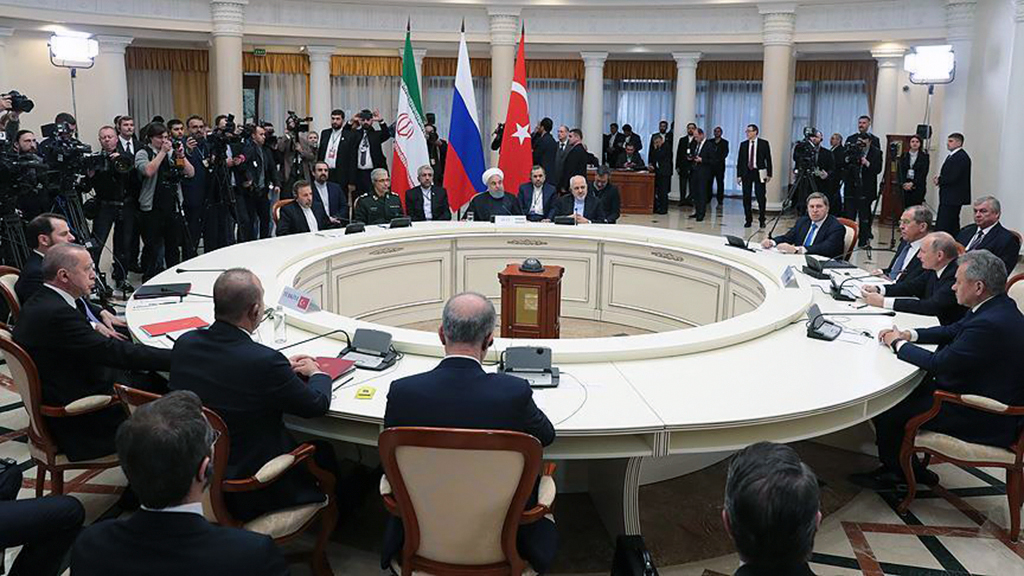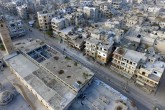Despite supporting opposite sides, Turkey and Russia have maintained dialogue for the last several years in the Syrian crisis. Together with Iran, another Bashar Assad supporter, they initiated the Astana Process. They have taken several significant steps to lessen the level of violence in the country. However, the Assad regime has insistently violated the cease-fire and continued its attacks against the opposition and civilian targets.
In the Syrian crisis, Russia, Iran and the Assad regime, controlled by Russia, have no red lines and continue to target everyone in the country, both military and civilian. They continue to create fait accompli and expand their clout in opposition-controlled territories. They intend to deterritorialize the opposition, which holds the Idlib region only. Besides Turkey, there are no significant supporters of the opposition. Therefore, the Assad regime and Russia enjoy military superiority. Accordingly, they do not prioritize a political solution to the crisis and prefer to solve the problem through military means.
As part of this policy, on Feb. 3, Turkish military points established in the Idlib region to deter regime forces from moving northward and attacking civilians in the region were targeted by regime forces. The regime forces killed five Turkish soldiers and three civilians. Turkish security forces retaliated immediately, targeting military installations and killing dozens of Syrian forces.
The attack came at a time marking Turkey’s persistent challenge of the Russian position in Libya – a move that has forced Russia to withdraw its troops from Libya. It also coincides with President Erdoğan’s planned visit to Ukraine and his promise to provide military support to Kiev. Likewise, the regional conjuncture is convenient because most stable Arab countries have good relations with Russia. Ultranationalist governments in Israel and the U.S. remained indifferent to the Russian activities in the Syrian crisis.
What are the implications of the latest crisis? There are many parameters to take into consideration. First of all, Russia has violated the terms of the Sochi Agreement.
Following clear Russian support for the illegal actor in the Libyan crisis, Gen. Khalifa Haftar, Turkish people’s perception of Russia has dramatically changed. Though most felt intervention in the Syrian crisis due to its long-time military presence and strategic interests in Syria was warranted, it is difficult to justify giving military support to an American citizen in Libya, an illegal actor who is supported by the U.S., France, Egypt, Saudi Arabia and the United Arab Emirates. If not managed, the latest attack may initiate a negative phase in Turkish-Russian relations that could have widespread repercussions, ranging from bilateral trade and tourism to the defense industry and energy pipelines. Losing Turkey would harm Russia’s Middle East ties and also those in Europe.
Otherizing Turkey in the region will come at a high price for Russia, which is already otherized by the West due to its interventions in Georgia and Ukraine and the annexation of the Crimean Peninsula. That is, Russia has been following an irredentist foreign policy in its immediate and remote neighborhoods. In return, NATO has taken security measures against the Russian threat. In other words, Russia is still considered an outsider in the NATO alliance.
Second, Turkey has to take necessary security measures in the region by sending combat military troops to the Syrian border. Turkey has to demonstrate its deterrent power to the Assad regime and to Russia and to show that it is still one of the main players on the ground. Turkey cannot allow the Assad regime to create an atmosphere that will threaten its national security.
Third, the Syrian crisis has implications for many other global and regional powers, including the United States, the European Union and the United Kingdom. Turkey has been warning Western countries that in case of occupation of the Idlib region, it will not take the only responsibility of hosting the new wave of refugees. Turkey will open its southern doors to rescue the refugees and its western doors to alleviate its burden and allow them to migrate to Europe. European countries, nowadays ruled by ultranationalist and xenophobic governments, are concerned that not only refugees but also radical elements and foreign fighters will leave Syria.
[Daily Sabah, 5 February 2020]
In this article
- Opinion
- Cease-fire | Ceasefire
- Crimea
- Daily Sabah
- Europe
- European Union (EU)
- Foreign Fighters
- France
- Global Actors | Local Actors
- Idlib
- Islamic Republic of Iran
- Israel
- Libya
- Libyan Crisis
- Middle East
- NATO
- Opposition
- Recep Tayyip Erdoğan
- Red Line
- Regional Power
- Russia
- Syria
- Syrian Civil War
- Syrian Conflict
- Syrian Peace Process
- Ukraine
- Western Countries
- Western World



